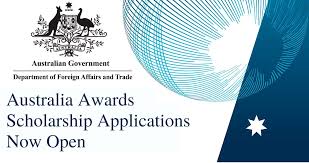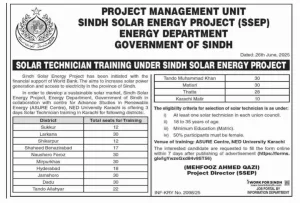
The Australia Awards Fellowship is a prestigious and competitive scholarship program funded by the Australian Government’s Department of Foreign Affairs and Trade (DFAT). This initiative aims to build partnerships between Australian organizations and leaders in developing countries by providing opportunities for individuals to undertake study, research, and professional development in Australia. The goal of the Australia Awards Fellowship is to equip recipients with the skills, knowledge, and networks necessary to drive change and contribute to the development of their home countries.
If you’re an aspiring leader or a professional from a developing country, the Australia Awards Fellowship could be your gateway to advancing your career, expanding your expertise, and establishing valuable connections with Australian institutions. In this article, we will guide you through the entire process of applying for the Australia Awards Fellowship, covering eligibility criteria, the application process, benefits, and tips for a successful application.
Table of Contents
Understanding the Australia Awards Fellowship
The Australia Awards Fellowship is part of the broader Australia Awards initiative, which includes various scholarship and fellowship programs aimed at supporting development and capacity building in countries across the Asia-Pacific, Africa, Latin America, and the Middle East. While the Australia Awards Scholarships are typically long-term academic scholarships, the Australia Awards Fellowship is more focused on short-term, specialized training and professional development programs.
The Fellowship is designed for professionals, policymakers, researchers, and individuals in leadership positions who have demonstrated potential to make significant contributions to their sectors. Fellows can come from a wide range of fields, including health, education, agriculture, governance, environmental sustainability, gender equality, and economic development. The fellowship provides recipients with the opportunity to work with Australian host organizations on programs that are designed to address specific development challenges faced by their home countries.
Eligibility Criteria
Before applying for the Australia Awards Fellowship, it is important to ensure that you meet the eligibility requirements. The program is highly competitive, and only candidates who meet the criteria are considered for selection. Below are the key eligibility requirements:
- Nationality:
Applicants must be citizens of one of the eligible countries. These countries are typically located in the Asia-Pacific region, Africa, Latin America, and the Middle East. The list of eligible countries is updated periodically, so it is important to check the official Australia Awards website for the most current information. - Professional Background:
The fellowship is aimed at mid-career professionals, policymakers, researchers, and leaders who have demonstrated leadership potential and a commitment to the development of their home country. Applicants should have a strong track record in their respective fields and must be able to show how the fellowship will help them make a significant impact in their sector. - Work Experience:
Applicants are typically required to have a minimum of five years of relevant work experience in their field. This work experience should align with the development goals of the fellowship and demonstrate a clear link between the applicant’s current role and the goals of the program. - Host Organization:
Candidates must be nominated by an Australian host organization, such as a university, research institute, government agency, or non-governmental organization (NGO). The host organization will develop a fellowship proposal in collaboration with the applicant and submit it to DFAT. This collaborative aspect is essential, as the fellowship is based on building partnerships between Australian institutions and developing countries. - Commitment to Development:
Applicants must demonstrate a strong commitment to contributing to the development of their home country. This can be evidenced through past work, community involvement, and a clear plan for how the knowledge and skills gained through the fellowship will be applied to benefit their country upon return. - English Proficiency:
Since the fellowship is conducted in English, applicants must have a strong command of the English language. Some fellowship programs may require applicants to provide proof of English language proficiency, such as an IELTS or TOEFL score, although this may vary depending on the host organization.
The Application Process
The application process for the Australia Awards Fellowship is competitive and rigorous. It involves multiple stages, including submitting an expression of interest, collaborating with a host organization, and developing a fellowship proposal. Below is a step-by-step guide to the application process:
- Identify a Host Organization:
The first step in applying for the Australia Awards Fellowship is identifying an Australian host organization that aligns with your professional interests and development goals. Host organizations can include universities, research institutes, government agencies, or NGOs. These organizations are responsible for nominating fellows and developing fellowship proposals in collaboration with the applicant. To find a suitable host organization, you can:
- Research institutions that specialize in your field of expertise.
- Reach out to Australian organizations with which you have existing relationships or partnerships.
- Use the Australia Awards website and other resources to identify potential host organizations.
- Develop a Fellowship Proposal:
Once you have identified a host organization, the next step is to collaborate with them to develop a fellowship proposal. The proposal outlines the objectives of the fellowship, the specific activities that will be undertaken, and the expected outcomes. The proposal should demonstrate how the fellowship will contribute to the development of your home country and how the partnership with the Australian organization will be mutually beneficial. The fellowship proposal typically includes:
- A clear statement of objectives: What do you hope to achieve during the fellowship, and how will this contribute to your professional development and the development of your home country?
- A detailed work plan: This outlines the activities and training you will undertake during the fellowship, such as research projects, professional development workshops, or fieldwork.
- Expected outcomes: What are the anticipated short-term and long-term impacts of the fellowship? How will the knowledge and skills you gain be applied in your home country?
- Submit the Fellowship Proposal:
After developing the fellowship proposal in collaboration with your host organization, the host organization will submit the proposal to DFAT on your behalf. It is important to ensure that the proposal is well-written, aligns with the development goals of the Australia Awards program, and clearly demonstrates the potential impact of the fellowship. - Assessment and Selection:
Once the proposal is submitted, DFAT will assess it based on several criteria, including the relevance of the proposed fellowship to Australia’s development priorities, the quality of the proposal, and the potential impact of the fellowship on the applicant’s home country. The selection process is highly competitive, and only the most promising candidates will be awarded a fellowship.
Benefits of the Australia Awards Fellowship
The Australia Awards Fellowship offers numerous benefits for both fellows and their host organizations. Below are some of the key benefits:
- Professional Development:
Fellows receive specialized training and development in their field of expertise, which enhances their professional skills and knowledge. This can include attending workshops, participating in research projects, or completing short-term courses at Australian institutions. - Networking Opportunities:
The fellowship provides recipients with the opportunity to build strong networks with Australian professionals, researchers, and policymakers. These connections can lead to long-term collaborations and partnerships that continue even after the fellowship ends. - Cultural Exchange:
Fellows have the opportunity to immerse themselves in Australian culture, learning from the country’s practices in governance, innovation, and development. This cultural exchange fosters mutual understanding and strengthens relationships between Australia and developing countries. - Financial Support:
The fellowship covers various expenses, including:
- Travel costs to and from Australia.
- Living allowances during the fellowship period.
- Tuition or fees for any courses or training programs undertaken during the fellowship.
- Health insurance for the duration of the fellowship.
- Contributing to Development:
One of the most rewarding aspects of the Australia Awards Fellowship is the opportunity to apply the knowledge and skills gained during the fellowship to real-world development challenges in your home country. Fellows are expected to implement their learnings upon their return, making a positive impact on their communities and sectors.
Tips for a Successful Application
To increase your chances of being selected for the Australia Awards Fellowship, consider the following tips:
- Choose the Right Host Organization:
Select a host organization that aligns with your professional goals and has a strong track record of working on development issues relevant to your home country. - Develop a Strong Proposal:
Your fellowship proposal should clearly articulate the objectives of the fellowship, the activities you will undertake, and the expected outcomes. It should demonstrate how the fellowship will contribute to both your professional development and the development of your home country. - Demonstrate Your Commitment to Development:
Show a clear commitment to making a positive impact in your home country. Highlight any past work you have done in development, and outline your plans for how you will apply the skills and knowledge gained during the fellowship. - Seek Guidance from Previous Fellows:
If possible, connect with previous Australia Awards Fellows to learn from their experiences. They can offer valuable insights into the application process and provide advice on how to strengthen your proposal. - Prepare for a Competitive Process:
The Australia Awards Fellowship is highly competitive, so it is important to put your best foot forward in your application. Ensure that all materials are well-prepared, and take the time to craft a compelling fellowship proposal that stands out to the selection committee.
Conclusion
The Australia Awards Fellowship is a unique and highly coveted opportunity for professionals from developing countries to enhance their skills, expand their networks, and contribute to the development of their home countries. With a focus on professional development, collaboration, and capacity building, the fellowship empowers individuals to make a lasting impact in their sectors. By carefully following the application process, choosing the right host organization, and developing a strong proposal, you can increase your chances of being selected for this prestigious fellowship and unlock new opportunities for personal and professional growth.

